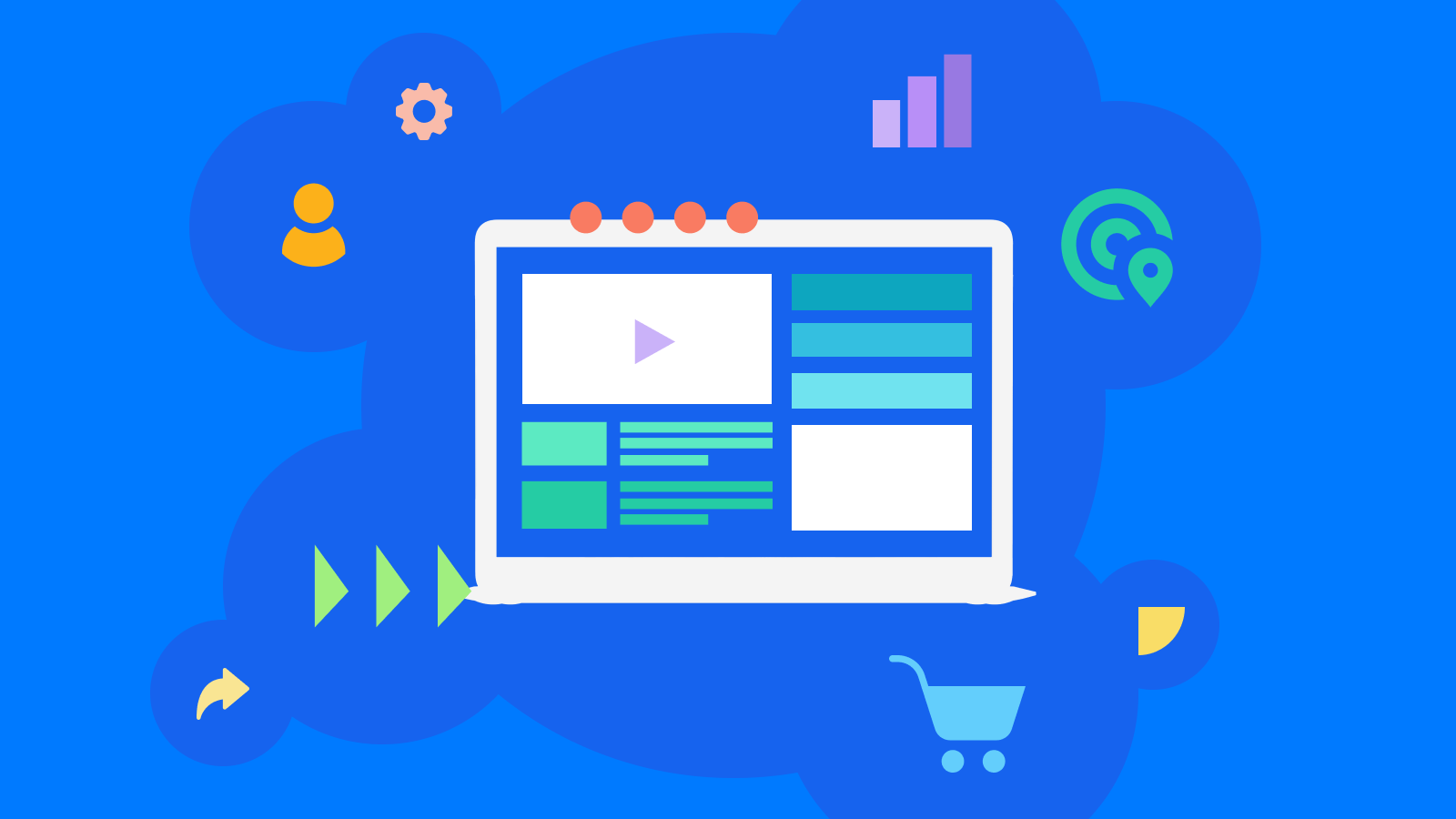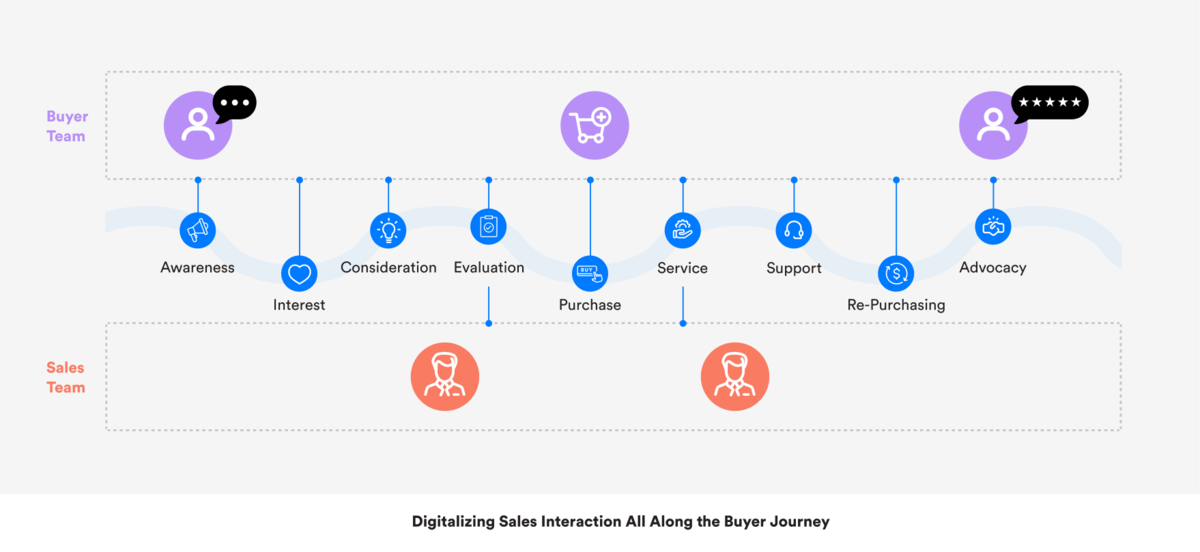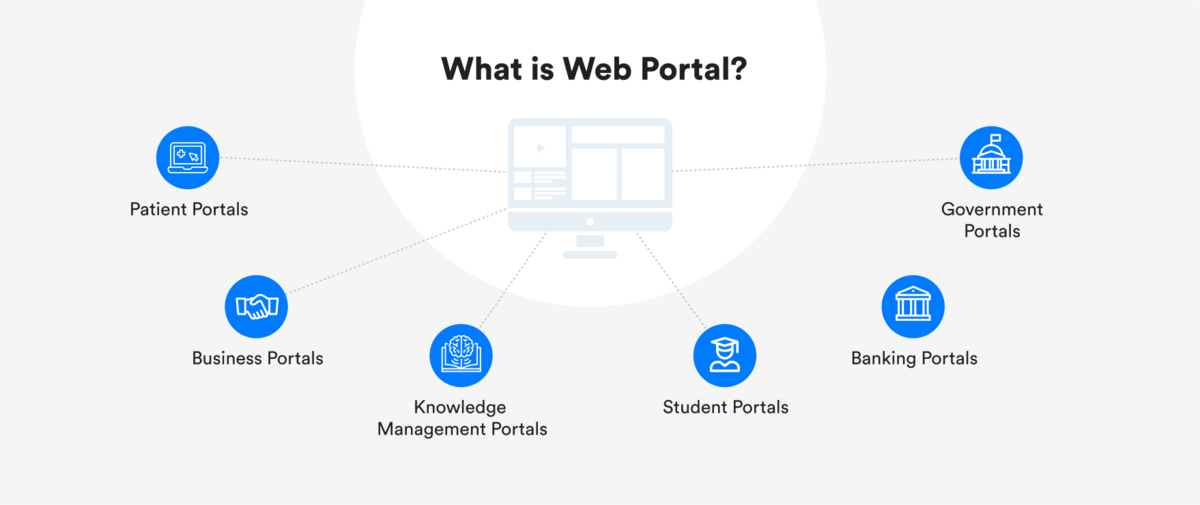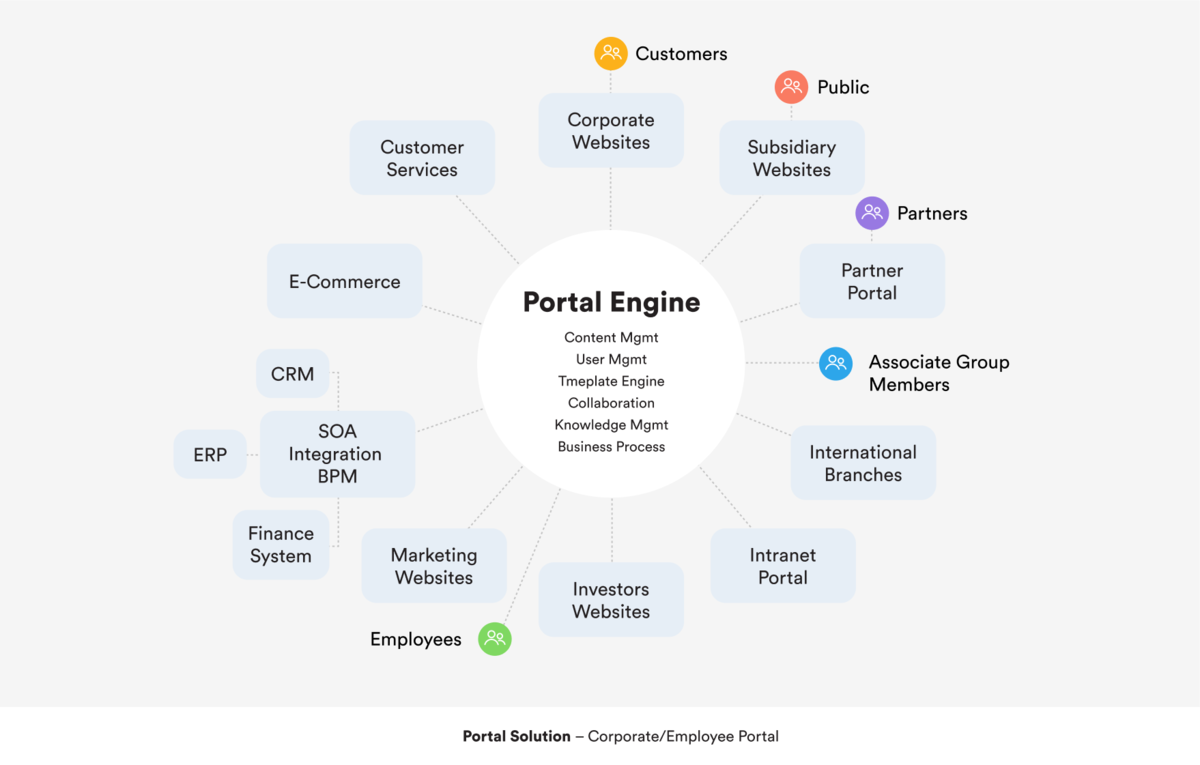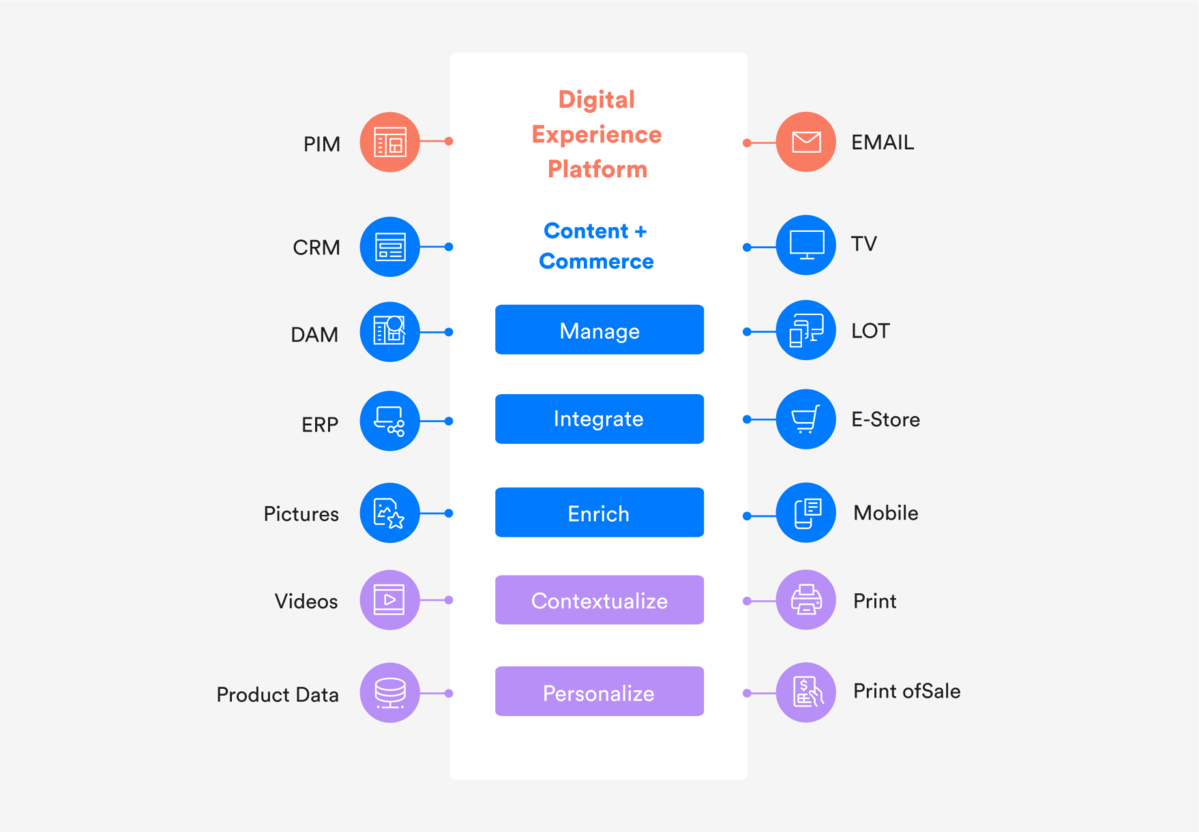Technology has become an indispensable part of modern businesses, offering a range of tools and software solutions that streamline operations, increase productivity, and enhance customer experiences. As digitalization continues to advance, businesses must prioritize improving their digital experiences to stay competitive in the market. This is where Digital Experience Platforms (DXP) and web portals come into play, providing integrated platforms for managing and delivering digital content across multiple channels.
Importance of Enhancing Digital Experiences
Customers now expect seamless interactions across all digital touchpoints. A poor digital experience can result in customer dissatisfaction, reduced loyalty, and lost revenue. Therefore, businesses must focus on improving their digital experiences to meet and exceed customer expectations. This involves creating a consistent brand experience across all channels, enhancing website usability, and offering personalized experiences based on customer preferences.
To deliver effective digital experiences that meet customer expectations and drive business growth, a variety of tools and technologies are required. By leveraging these tools in combination with a clear strategy and customer-centric approach, businesses can create compelling digital experiences that foster brand loyalty and generate revenue.
Choosing Between CMS, Web Portals, and DXP
Although many companies still rely on standard websites and content management systems (CMS), these may not provide the necessary digital experiences required for customers throughout their extended digital journey. From a technological perspective, several key differences emerge in this regard.
CMS (Content Management System)
A CMS, such as WordPress, is designed to oversee the creation and modification of digital content. It is a software platform that empowers businesses to generate, manage, and edit website content without requiring specialized technical expertise from developers. Traditional CMS lack a set of features out of the box to manage customer experiences, workflows and interactions.
Web Portal
A web portal serves as a single entry point for accessing information, services, and applications over the internet. It acts as a centralized platform, offering users a personalized and customizable experience with the ability to interact with various data sources. Web portals commonly provide content management, user management, knowledge sharing, and collaboration functionalities.
Web portals find utility in various business scenarios. For customers, they provide self-service platforms for managing accounts, making purchases, and accessing support resources. Internally, web portals serve as central hubs for communication, collaboration, and accessing company resources and tools. For partners, web portals offer a platform for sharing information, coordinating activities, and collaborating on projects. Overall, web portals improve efficiency, reduce costs, and enhance the user experience.
Digital Experience Platform (DXP)
A digital experience platform (DXP) is a software solution that helps businesses manage and deliver exceptional digital experiences to customers across all touchpoints, including websites, mobile apps, social media, and other online channels. Examples of DXPs include Ibexa DXP, an open-source content management and digital experience platform that offers a range of features and tools to manage the entire digital experience lifecycle.
Key components of a DXP include content management and delivery, customer data management, personalization and targeting, omnichannel strategy, and analytics and reporting. These components work together to create a seamless and personalized customer experience, enabling businesses to engage customers in meaningful ways.
The benefits of using a DXP like Ibexa DXP include increased customer engagement, improved customer loyalty, and enhanced brand recognition. DXPs also help streamline operations, reduce costs, and boost revenue by delivering targeted and relevant experiences to customers.
DXPs effectively manage, integrate, and enrich data to provide a superior digital experience throughout the entire customer journey.
Harnessing the Power of a DXP
Utilizing a DXP as part of a marketing campaign or e-commerce activities offers numerous advantages. One of the most significant benefits is marketing automation, which saves time and resources by automating tasks like email marketing, social media posting, and lead nurturing. With tools like Ibexa Connect, businesses can streamline marketing efforts and allocate time to other critical areas, such as creating high-quality content or analyzing campaign results.
Customers expect the ability to build marketing microsites or landing pages on the fly with personalization and customization. Integration of various digital systems is also crucial for maximizing their potential. For example:
- Building microsites for specific topics or products
- Displaying relevant products and promotions on landing pages using dynamic content
- Enabling personalization and recommendation engines based on existing customer insights
- Adding and transferring form data directly from CRM or ERP systems with minimal coding or none at all
- Leveraging analytics insights to offer improved services to clients across multiple visits
- Optimizing the user experience throughout the entire customer journey
Another advantage of using a DXP with personalization capabilities linked to a preferred CRM is the ability to create a personalized experience for customers. Personalization involves tailoring content, messaging, and user experiences based on visitors' behavior or profile data. By providing a more relevant and engaging experience, businesses can increase customer satisfaction, conversion rates, and brand loyalty. A DXP combined with a CRM allows for personalized campaigns targeting specific segments or individuals, tracking their engagement, and adjusting approaches based on responses. Ultimately, personalization strengthens customer relationships and differentiates the brand from competitors.
The Role of AI in Marketing Automation and Personalization
AI plays a pivotal role in automating tasks that previously required human intervention, such as data gathering, analysis, pattern identification, and decision-making based on insights. The integration of AI in digital marketing offers numerous benefits:
- Improved customer experience: AI-powered digital marketing solutions provide personalized experiences that enhance customer satisfaction and loyalty.
- Increased efficiency: AI automates repetitive tasks, improving the speed and accuracy of data analysis and decision-making, saving time and resources.
- Enhanced targeting: AI enables businesses to identify and target the most promising customer segments accurately.
- Real-time insights: AI analyzes vast amounts of data, providing real-time insights into customer behavior, preferences, and needs, empowering businesses to make data-driven decisions.
- Predictive analytics: AI-powered predictive analytics helps businesses forecast future trends and customer behavior, staying ahead of the competition.
Overall, AI offers significant potential to transform how businesses approach digital marketing, improving customer experiences, increasing efficiency, and providing real-time insights into customer behavior and preferences.
AI's Role in DXP and Web Portals
AI plays a vital role in Digital Experience Platforms (DXP) and Web Portals. DXPs aim to provide seamless customer experiences across touchpoints, channels, and devices. AI-powered DXPs help create personalized experiences by identifying customer preferences, behaviors, and needs. Similarly, AI-powered web portals enable businesses to offer personalized experiences to website visitors by displaying relevant content and recommendations based on browsing history and behavior.
Why Ibexa DXP is our preferred DXP
It's true that we've been working with Ibexa (formerly eZ Platform and eZ Publish) since 2004. However, over the past 20 years, we've also developed dozens of websites in other technologies such as Typo3, Drupal, WordPress, Liferay DXP, and Adobe Experience Manager (AEM). These technologies are also great, but they all have their advantages and disadvantages.
We have found the flexibility of Ibexa, an open source platform based on the Symfony framework with the reliability of a commercial product, to be our preferred tool. It offers customers excellent value for money and an incredibly short time-to-market.
Ibexa DXP has a robust content management system that can manage complex content structures and workflows. This makes it possible to create and manage content in an organized and efficient manner. It also offers a number of customization options that allow the platform to be tailored to specific business needs. This includes the ability to add custom features and enable integrations with other systems.
Ibexa has an impressive track record of scalability and performance. This is critical for Netgen as we work with customers who have high-traffic websites and complex digital experiences.
Together with Netgen's tools such as Netgen Layouts, Site API, and AI tools we have been building on top of Ibexa, we are able to deliver great value to our customers.
Overall, the decision to use Ibexa DXP as our core DXP has enabled Netgen to deliver robust and scalable digital experiences to our customers, while providing the flexibility to customize the platform to meet specific business requirements.
Summary
Overall, DXP and web portals play a crucial role in leveraging AI for marketing automation and personalization. They provide a central platform for data management, enable personalized content, automate processes, and contribute to the effectiveness of customer management and optimization of marketing strategies.
